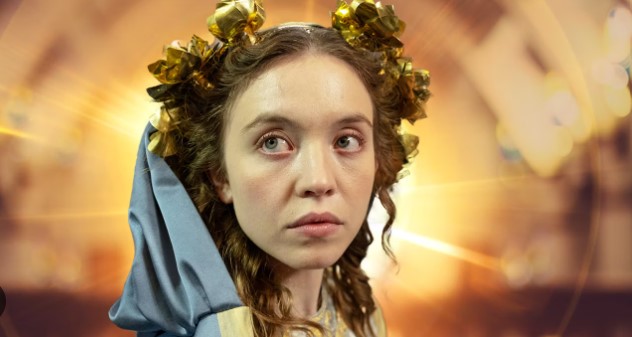
Immaculate Ending Explained Truth: Sister Cecilia in “Immaculate” played by Sydney Sweeney is a role that’s cold enough to make you shiver; the movie dispels religious hypocrisy. This psychological horror deals with violation of body, dilution of spirituality and a female’s struggle for life through misuse of religion towards twisted ends.
The Unraveling of Sister Cecilia
Cecilia comes to an Italian convent looking for spiritual fulfillment only to find herself pregnant with no explanation. A conspiracy unfolds as she desperately searches for answers, one much more evil than any sin she had known. The church was not sanctuary but breeding grounds for grotesque experiments. Such men purport themselves as seeking another messiah yet they have released a monster perversion of faith.
Cecilia has become desperate in her agony for survival and sanity throughout all this trouble where he is surrounded by people who are either blindly obedient or monstrously ambitious. Father Tedeschi may be currently using relics as tools of coercion but initially served as a doctor. Piety cloaks the Mother Superior, whose secrets may well rival those that lie hidden elsewhere within the walls.
Confronting the Unthinkable : Immaculate Ending Explained Truth

Cecilia discovers what she can’t believe to get near the edge. Her faith is shattered by actions taken in the church hence leaving her alone with their manipulation’s aftermaths. She is determined to defy anybody who wants to take control over her every move and thought, anything they might say or do against them she will protest even if it meant death and just escape out of desperation mixed with defiance found recently. What once symbolized devotion- crucifix becomes a tool of disobedience here.
Descent into Darkness
Driven by need rather than fear Cecelia eventually enters the dark labyrinth located under the nunnery. She is running away but intending on having a final face off here in its heart of darkness. Tortured by considering the mad Father Tedeschi as his enemy. She is shown how power can corrupt with impunity.
A Mother’s Agonizing Choice
The birth scene reveals the true depravity of the church’s actions. Cecilia’s child is not a gift from God but an abomination that represents defiled purity. This moment however marks a total collapse of faith. Despite this, there are no signs of divine intervention which forces her to bear an unbearable weight on her shoulders alone. As a result, she has to commit the most devastating act ever, by putting her baby out of its misery at the same time rebelling against those who brutalize her body.
The Lingering Aftermath
“Immaculate” ends in an agonizing ambiguity that will stay with viewers for a very long time after the credits have rolled. Consequences of her acts reverberate through the silent walls leaving Cecilia’s destiny unknown after it all ends in its final scenes. It serves as a damning indictment on unlimited authority especially within organizations dressed in moral clothes.
Also Read – Under the Bridge Episodes 1 & 2
Also Read – Eminence In Shadow Season 2 Ending Finale Explained (Detailed)
Beyond the Surface
The movie goes beyond immediate horrors to open up further reflection for audiences. It casts serious doubts on religious fanaticism, women’s rights under authority and holiness turning into sinful instead! “Immaculate” brings us face-to-face with horrible truth: sometimes most dangerous threats are covered by language of salvation itself.
EASY FAQs
There remains some trace of fiction in terms of relatable. Possibly abusive nature of forced impregnation through religion upon which the film is inspired.
What they reflect is how faith can be perverted so that objects. Representing something holy become tools used for evil purposes.
But the open ending allows for interpretation, as it could mean many things. She might free herself, although we cannot predict what happens to her next commensurate with the way in which real life presents problems involved in avoiding oppressive social environments.